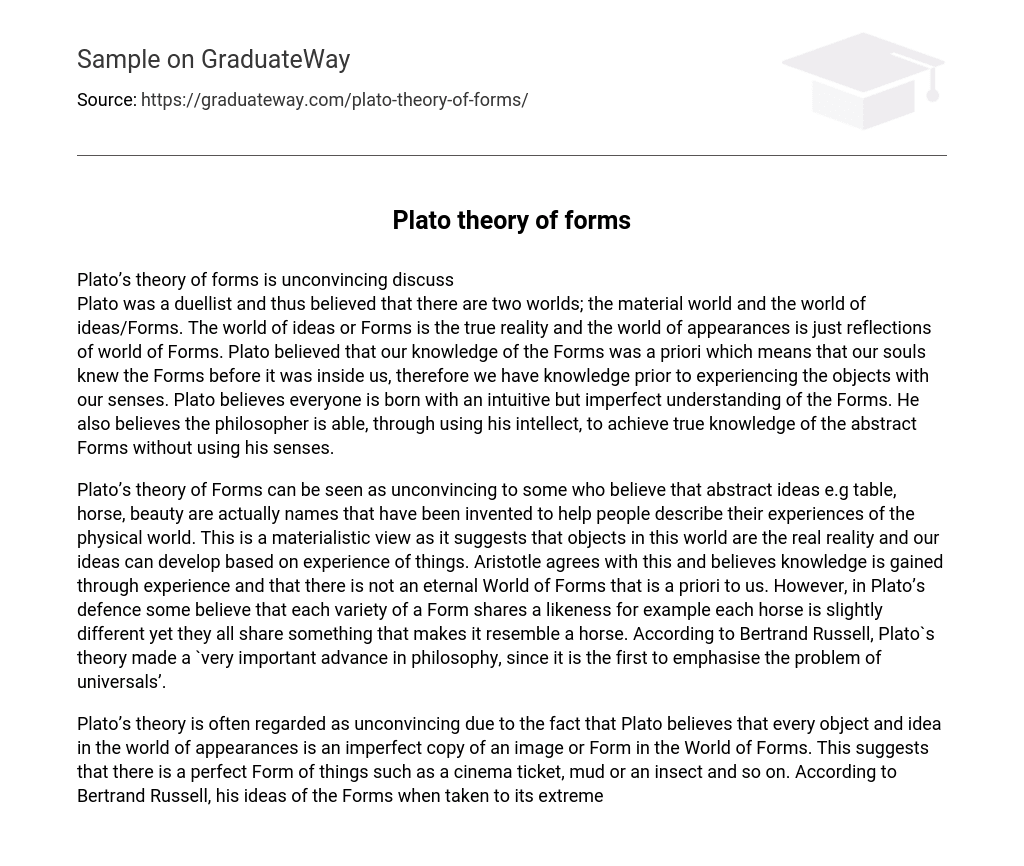Plato proposed the concept of two worlds: the material world and the world of ideas or Forms. He believed that the world of ideas or Forms represents true reality, while the material world merely mirrors this reality. Plato argued that our understanding of the Forms is innate and comes before our interactions with physical objects. He held that every person is born with an imperfect but instinctive comprehension of the Forms. Additionally, he asserted that philosophers have the capacity to acquire genuine knowledge of abstract Forms without depending on their senses.
Some people find Plato’s theory of Forms unconvincing because they think that abstract ideas like table, horse, and beauty are just invented names to describe our experiences of the physical world. This is a materialistic viewpoint, suggesting that the objects in our world are the true reality and our ideas develop based on our experiences. Aristotle agrees with this and believes that knowledge is gained through experience and that there isn’t an eternal World of Forms that exists independently. However, in defense of Plato, some argue that each instance of a Form has a similarity. For example, every horse is slightly different, but they all share something that makes them resemble a horse. Bertrand Russell believes that Plato’s theory made an important philosophical advancement by highlighting the issue of universals.
According to Bertrand Russell, Plato’s theory is often criticized for its lack of conviction. This is because Plato believes that every object and idea in our physical world is a flawed representation of a perfect image or Form in the metaphysical World of Forms. This implies the existence of a flawless Form for various things like a cinema ticket, mud, or an insect.





